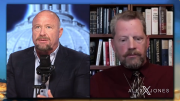
After the European Commission (EC) suggested accession talks with Ukraine and Moldova to be initiated by the European Council, comprising leaders of the EU’s 27 member states, Hungary expressed that it will veto such a move at an EU summit this December.
“The way in which Ukraine violates the most basic rules of the EU in the areas of national community and ethnic minority rights is particularly blatant,” Hungarian Foreign Minister Péter Szijjártó said on November 8, alluding to the clampdown on ethnic minority rights in Ukraine, including those of Hungarians.
Under Ukrainian leader Volodymyr Zelensky and his predecessor, Petro Poroshenko, Ukraine has restricted the use of ethnic languages not only in ethnic minority schools and the media, but also in cultural and public institutions in communities where minorities comprise a majority of the local population. Even before the start of the Russo-Ukrainian conflict in February 2022, Hungary had been vocal in its stance that it would oppose Ukraine’s entry into the EU or NATO until minority rights were restored.
Balázs Orbán, political advisor of the Hungarian prime minister, tweeted:
The recently adopted Ukrainian language law makes life more difficult for Hungarians, especially in the education of children. Protecting the rights of indigenous minorities is an integral part of the EU’s core values, so we cannot support Ukraine’s EU integration if this law is in force.
Although the EC declared that Ukraine had fulfilled “over 90 percent of the necessary steps” to start negotiations, Kyiv is still grappling with widespread corruption and has yet to boost national minority safeguards as mandated by the EU.
An inconvenient reality for possible Ukrainian accession to the EU is that Ukraine is technically locked in an ongoing and drawn-out conflict with Russia, with about one-fifth of its internationally recognized territory under Russian control. Referring to this fact last week, Hungary’s Szijjártó posited that Ukraine’s EU membership will bring war to the bloc, “which, obviously, no one wants.”
“Ukraine is in a state of war, so we can see that neither freedom of speech nor freedom of expression is respected there, and elections are not held either,” Szijjártó elaborated. “It would be obviously absurd for EU member states to take a position on how Ukraine functions in such conditions as rule of law institutions.”
While there have been attempts within the EU to accept a country at war as a member, Serbia’s accession talks have been put on hold for the mere reason that the country does not acknowledge the independence of Kosovo.
Instead of supporting Ukraine’s entry into the EU, Hungary would focus on the EU integration of western Balkan countries, as well as the accession of Bulgaria and Romania to the border-free Schengen Area, vetoed by Austria and the Netherlands for fears associated with crime and unbridled migration.
Apart from Hungary, Slovakia will also very likely block Ukraine’s entry into the EU, or at least insist on a high price in exchange for Bratislava’s approval.
In September, left-wing nationalist Slovakian Prime Minister Robert Fico won the country’s parliamentary election with pledges to object to continued EU-NATO military support for Kyiv.
Fico’s government, formed only a few weeks ago, rejected on November 8 a previously drafted plan to send rockets and ammunition to Ukraine. Slovak media reported that the government dismissed sending the 40.3-million euro ($43.2 million) military aid package for Ukraine proposed by its predecessor.
Under its previous government, Slovakia supplied Ukraine with comprehensive humanitarian and military assistance, including artillery, fighter jets, and other support. Military equipment provided to Ukraine entailed fighting vehicles as well as an S-300 air defense system and MiG-29 jets.
Media reports at the end of October already hinted that Fico would no longer dispatch arms to Ukraine, and would also promulgate this position on a European level.
While Slovak President Zuzana Čaputová could have approved the new military aid package before Fico officially entered office, she reportedly refused to do so on the grounds that such a move would not respect the result of Fico’s electoral victory, Slovak media also reported.
The package originally meant for Ukraine included over 5,000 pieces of 125mm cannon ammunition, 4 million rounds of small-arms ammunition, 140 KUB air defense rockets, and 1,200 mines.
Instead of military support, the new Slovak government will help Ukraine with humanitarian aid, Interior Minister Matúš Šutaj Eštok proclaimed, adding, “We want peace, not war.”
On November 6, nonetheless, Fico said that his government will not ban arms sales from Slovak companies to Ukraine. “If some company wants to produce arms and export them somewhere, nobody is going to prevent that, of course.”
Notably, Ukraine and Moldova completed the transition from EU applicants to candidates 11 times faster than the average member, Newsweek pointed out. Both countries attained candidacy status — a step in the journey to opening accession talks — in June 2022, around four months after applying to join the EU. Oleksandr Merezhko, chair of the Ukrainian parliament’s foreign affairs committee told Newsweek:
I still cannot understand why Ukraine, which is fighting hard for European values, is out of the EU, whereas Hungary, which systematically undermines European values, is still in the EU. It should be vice versa. Such behavior by Hungary will go down in history as extremely selfish and unethical.
Ukrainian Deputy Prime Minister for European Integration Olha Stefanishyna revealed on November 9 that Ukrainian and Hungarian officials were working together on legislative changes. Stefanishyna admitted that, although persuading Hungary to join Ukraine’s side would be tough, she was “confident” Ukraine would succeed.
Meanwhile, Zelensky has voiced his eagerness to talk with former U.S. President Donald Trump directly just in case the Republican front-runner retakes the White House in 2024, an insider source in Kyiv told Ukrainian outlet Strana on November 12.
An individual close to Zelensky’s office explained that Trump, as the de facto 2024 presidential nominee for the Republican Party, effectively controls the flow of foreign aid to Ukraine, since Republicans hold the majority in the House of Representatives, and the House has been key in obstructing the White House’s attempts to continue funding the Ukrainian conflict.
Zelensky’s Cabinet thus “is trying to organize a direct conversation between Trump and Zelensky,” the source told Strana.
Earlier this month, Trump publicly declined an invitation from Zelensky to visit Kyiv, stating that he was concerned it would be “inappropriate” to go to Ukraine as Zelensky was presently “dealing with” Trump’s successor and 2024 rival, Joe Biden, and Trump “would not want to create a conflict of interest.”
Zelensky had publicly invited Trump to Ukraine as a challenge to Trump’s claim that he could end the conflict between Russia and Ukraine in just 24 hours if reelected in 2024. In turn, the Ukrainian leader alleged that if Trump would visit Kyiv, he would need just 24 minutes to persuade Trump that “he can’t manage this war. He can’t bring peace because of [Russian President Vladimir] Putin.”




